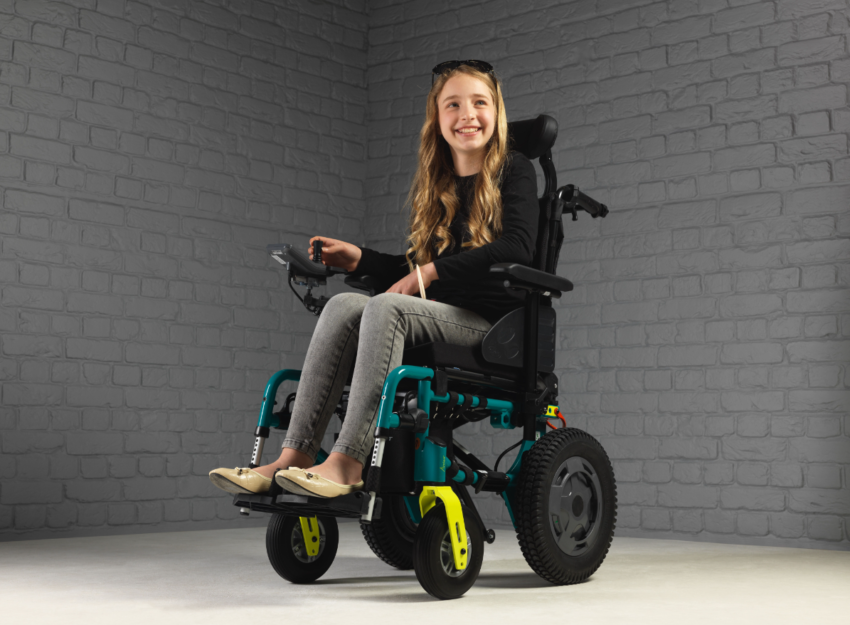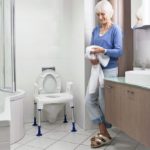How a power wheelchair can support your child’s independence and wellbeing

Anyone with children could tell you that children want to be independent, explore and be with their friends.
Independence and mobility are important for a child’s cognitive and psychological wellbeing. For some children with disabilities, power wheelchairs are the only way to achieve mobility. A wheelchair can open up their participation in school, social life and opportunities to explore.
Evidence shows that power wheelchairs can improve the wellbeing of children who can’t walk, struggle to walk long distances, or can’t manoeuvre a manual wheelchair. By giving children with disabilities the ability to move around independently, power wheelchairs support development, exploration and inclusion in daily activities.
Why is independent mobility so important?
Mobility limitations can have a negative effect on a child’s cognitive and sensory development, and wellbeing. Assistive aids, such as power wheelchairs, are thought to positively affect a child’s development. In fact, assistive technology is essential in giving children access to the same opportunities as children without disabilities. Children demand freedom and fun, and powered mobility can help support their:
- Independence
- Education
- Exploration
- Social skills
- Play, fun and hobbies
- Cognitive development
Is a power wheelchair right for my child?
When considering mobility aids for your child, it’s important to always get medical and a healthcare professionals’ advice. Wheelchairs and other assistive technology are usually recommended by your child’s clinician and supported by a multidisciplinary team including physiotherapists and occupational therapists. This will ensure that the aid chosen is appropriate for the child’s needs and abilities.
Generally, power wheelchairs are suitable for children who need a mobility aid early on, who can’t walk efficiently, or who will never walk. Whether your child uses a power wheelchair with other mobility aids or not, getting a powered chair for the first time means there is much to consider. But how do you know when your child is ready for a power wheelchair?
Guidance and advice from professionals
The decision to start using a power wheelchair and the learning process must be supported by occupational therapists and/or other medical professionals.
This is because children need to learn the skills of power mobility, just like manual mobility. Children will need help with appropriate controls, and caregivers need to decide how and when to introduce certain controls or functions e.g. on/off buttons.
Benefits of a power wheelchair for children
If a power wheelchair is selected as the right aid for your child, then there are many benefits they can offer, including:
- A smaller footprint compared to a manual wheelchair, and therefore a smaller turning radius. This makes a power chair especially practical for going to school, friends’ houses, and other indoor spaces.
- The ability to play and discover, safely and confidently.
- The opportunity to engage in games that can help develop core skills, such as fine motor skills.
- They can be controlled in a vast variety of ways, not just with the traditional hand-operated switches. For example, some can be controlled using head or eye movements. This makes power wheelchairs suitable for children with a variety of disabilities.
- Some models allow toileting without needing to transfer out of the chair, which can improve the comfort of the child. It’s also safer for caregivers as the child gets older, and gives the child more independence as they get older too.
Support for children with disabilities and their families
Having a trusted support network is especially important for children with disabilities and their families.
While the benefits of aids like power wheelchairs in facilitating everyday life outweigh the societal barriers wheelchair users often face, these can still be challenging. A trusted friend to chat to can be as invaluable as expert support, and one benefit of opening up your child’s world is that they will be building a group of friends, skills and resilience that they can take with them into adulthood.
Please find more information including articles on everything from travelling with a power wheelchair to how to replace wheelchair wheels.






